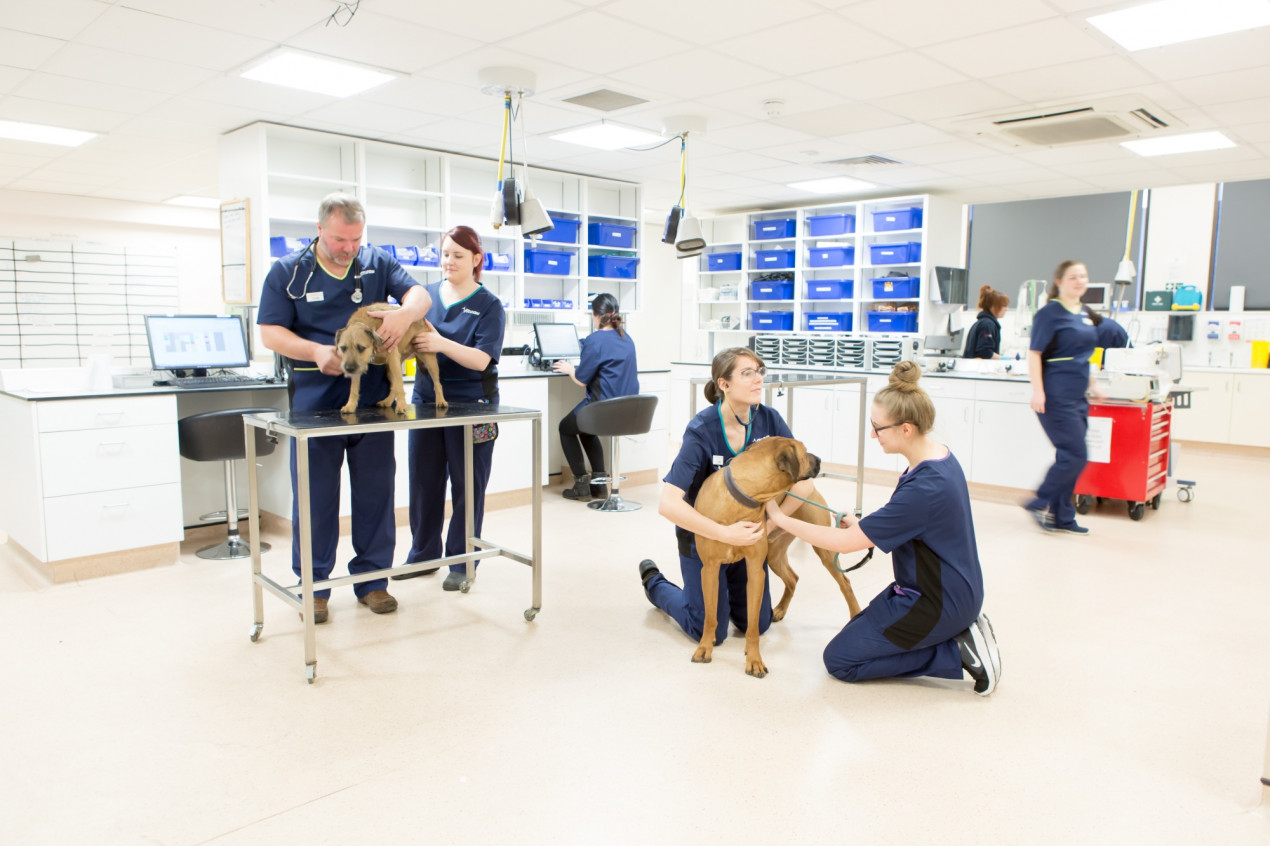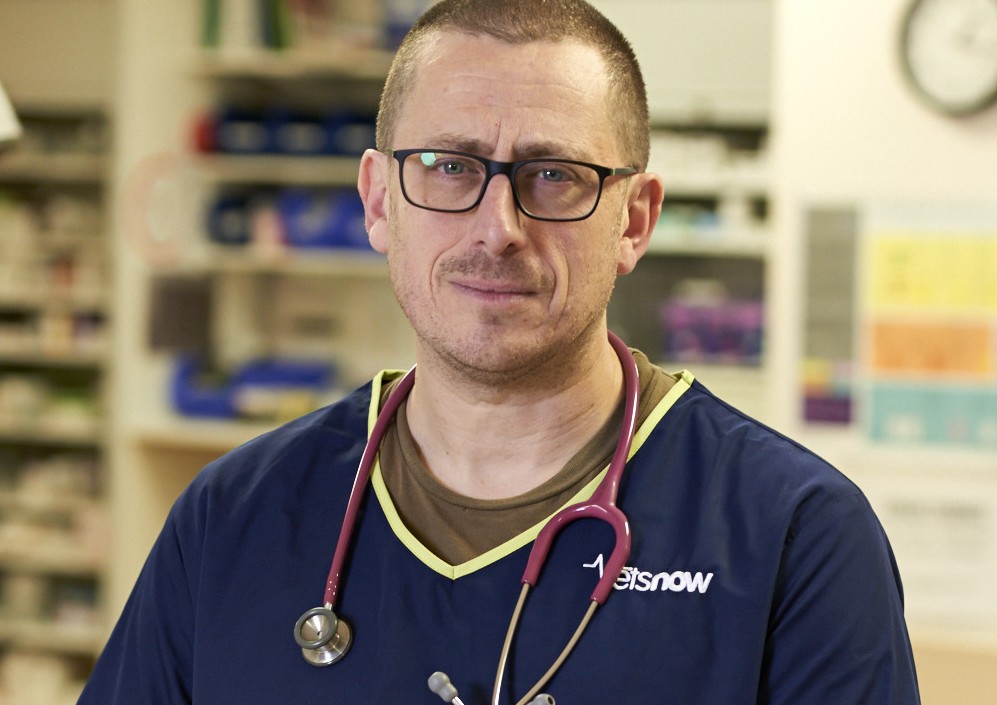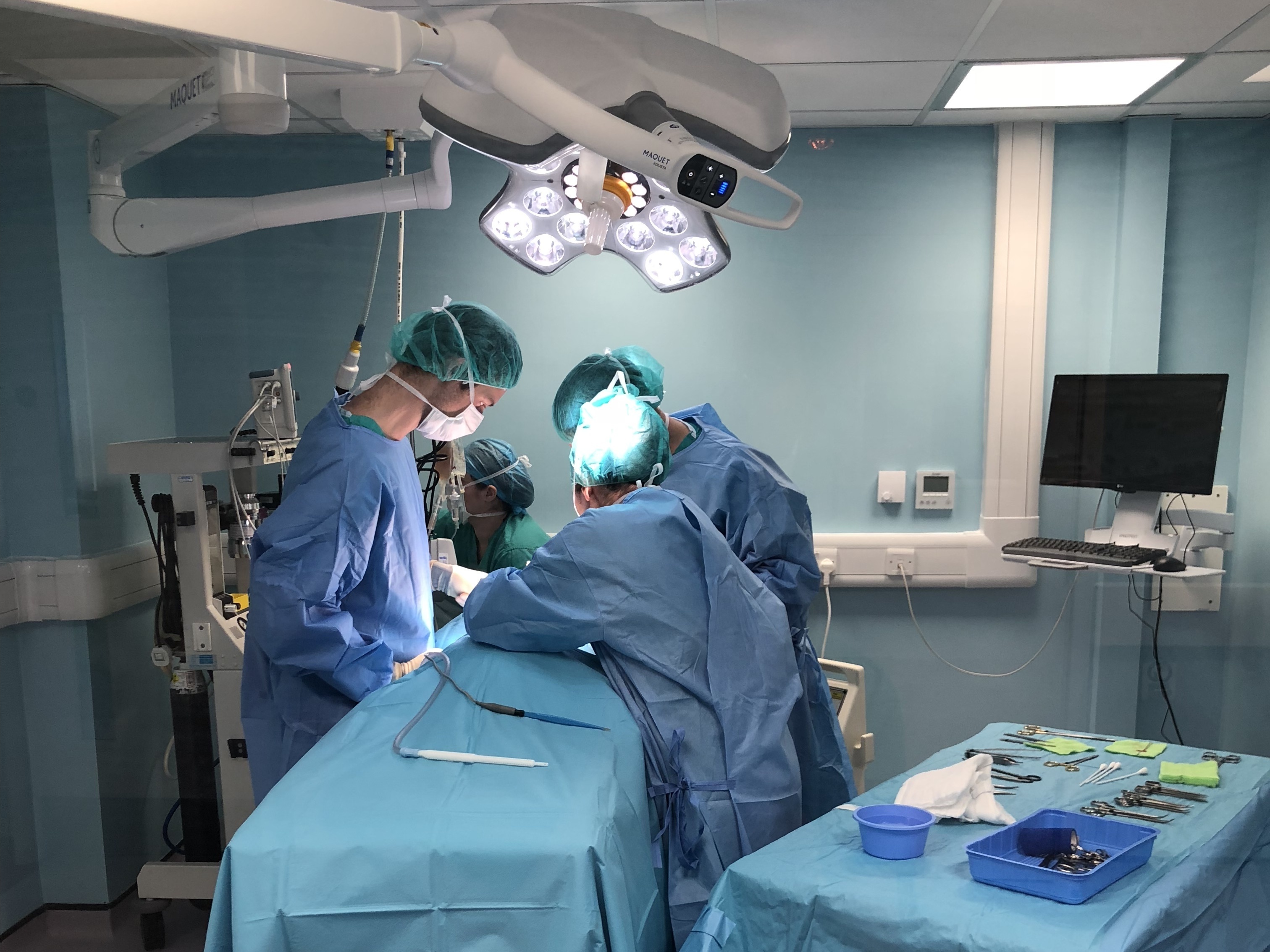People make Glasgow is the city’s famous slogan and it sums the place up perfectly.
But the sentiment is also evident in Vets Now’s emergency and specialty hospital in Glasgow, according to Dan Lewis, who is an American, European and RCVS-recognised specialist in emergency and critical care.
Thanks to a £1.5 million investment, it’s set to become of the most advanced facilities of its kind in Europe, and will soon feature a custom-built intensive care unit, an entire floor dedicated to emergency and critical care and a specialist oncology treatment area.
However, Dan, 46, believes what will continue to set the hospital apart – aside from the state-of-the-art equipment – are the people who work there.
“Everyone in the hospital, from front of house to senior vets, work really well together”, said Dan, who grew up in a rural part of mid-Wales and now lives in the Lake District with his wife and two children.
“There is a collegiate atmosphere. Everyone goes out of their way to help, both clinically and in other areas, and the refurbishment gives us the scope to work even more collaboratively, helping the hospital to reach its potential.”
Dan works alongside residency-trained referral clinician Kerry Doolin ensuring any critical cases rushed through the doors receive expert emergency veterinary care.
“As the ECC referral team we have oversight of the first-opinion work and we do a lot of backup for the frontline emergency team,” he explained.
“We also see a lot of emergency referrals during the day. These can be very sick patients who are destined to be dealt with by another service but who are too unstable to wait until the next working day for referral.
“This service helps referring practices as it avoids disrupting their busy daytime schedule.”
Dan added: “I once worked with a surgeon in the RVC who described ECC as being specialist general practitioners, and I don’t think that’s too far from the truth. We sit in between anaesthesia, medicine and surgery and our work covers everything from x-rays and ultrasounds to blood work.
“We’ll perhaps stabilise a pet when they arrive, then they’ll go into surgery, before coming back to us to do the intensive care. We essentially support the patient’s important organs and functions until we, or they, can fix whatever disaster has befallen them.
“As a result, we have a lot of fingers in a lot pies and because of that, we possibly have a more holistic view of patient’s pathway throughout the hospital.”
Dan had a long and varied career before joining Vets Now in 2015. He spent the first five years in a mixed practice, where he became interested in anaesthesia and intensive care, before moving to an ECC clinic in Manchester.
This cemented his enthusiasm for emergency work, and in 2008, he moved to the RVC to do a three-year residency in ECC. After passing his exams, Dan ran the ICU at Bristol vet school before hankering for a return north.
“At that point, ECC really only consisted of the RVC and a few out-of-hours clinics dotted around the country so I returned to my previous employer in the north-west of England. I then met [new business director] Tricia Colville and I was offered a job at Vets Now.
“The ethos of the company made it a very attractive proposition. I’ve always had the impression Vets Now actually cares about its patients, clients and employees. There is an all-pervading theme that everyone is trying to do their best.”
So what is Dan’s vision for the Glasgow hospital?
He said: “The refurbishment and expansion will not only give us more space, we’ll be three times the size we are now, but also a better flow.
“As time goes by, we’ll hopefully introduce some specialties we don’t currently offer and perhaps add some new services that fall in between particular specialties, which will allow us to be a bit more agile.
“There will also be a shift to doing more procedures in a minimally-invasive way.”
He added: “In the hospital, we run an ECC residency, we have an intern programme, and we do a lot of training for new emergency vets. I’d also love to see us expand on those programmes so teaching remains at the forefront.”




